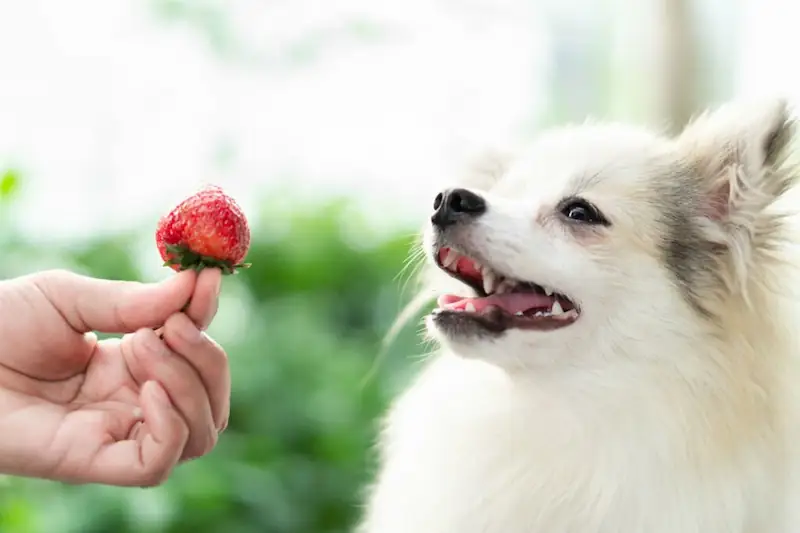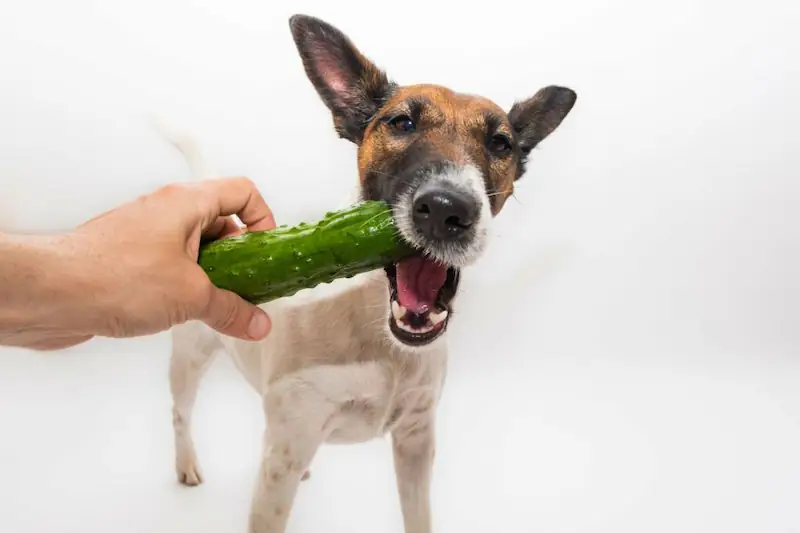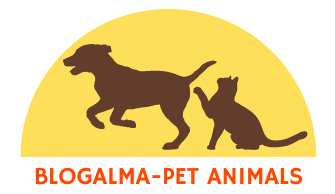Pet owners enjoy sharing special treats, snacks, and table scraps with their loved pets, but what happens if that table scrap turns out to be not only unhealthy but extremely dangerous for your dog?
It’s really important that all pet owners do their research and learn which fruits and vegetables are safe to give to their pets. The alternative could be a very sick dog and a rushed trip to the veterinarian.
Can I Give This To My Dog? Here’s A Comprehensive List Of Fruits and Whether They Are Safe For Your Dog – Or Not!

Dogs are not designed to eat the same foods humans eat because their digestive system is different to ours. Consuming the wrong foods can result in health issues for the dog and in extreme cases can even lead to death.
Dogs are carnivores, which means they don’t really need vegetables and fruits in their diet; however, it’s often fine to give an occasional vegetable or fruit treat, provided you know which ones are safe for your dog and which are not.
Check out the following list of fruits and vegetables to see which should be avoided at all costs, and which are okay to share with your pet – always in moderation!
Related: Can Dogs Eat Collard Greens? Are Collard Greens Safe for Dogs?
Can Dogs Eat These Fruits?
Apples: Yes. Dogs love apples and, yes, it is safe for them. Apples are a great source of fiber and Vitamins A and C. They’re also low in fat and protein, which makes them a great snack for older dogs. Just make sure you remove the core and all seeds before offering to your pet. For a perfect snack on a hot day, try offering your pooch a frozen piece of apple – he’ll love you for it!

Avocado: No. Dogs should not be offered avocado as a snack. We know that it’s a healthy snack for humans, but it should never be given to dogs. The leaves, skin, and the pit all contain persin, which is a dangerous toxin to dogs. Digesting any of these may cause vomiting and diarrhea in your pet. While the fleshy inside of the avocado does not contain as much persin as the other plant parts, it’s still more than your dog can handle. This is not an error. Avocado is a fruit!
Bananas: Yes. Dogs can have bananas – in moderation. They’re high in vitamins, potassium, fiber, copper, and biotin, which makes them the perfect low-calorie treat for your dog. They’re also low in sodium and cholesterol, but they do have a high sugar content which means they should only be given as a treat. They should not become part of your pup’s main diet. In fact, no human food should become part of your dog’s main diet.
Blackberries: Yes. They are loaded with vitamins and minerals and so they are fine in moderate quantities as is the case with most fruits. We cover the pros and cons of dogs eating blackberries here.
Blueberries: Yes. Blueberries are known as a ‘superfood’ because they’re rich in antioxidants. Antioxidants help prevent cell damage in both humans and dogs. Blueberries are also packed full of phytochemicals and fiber, which makes them a great treat for your dog. We suggest using blueberries as a treat instead of store-bought treats.

Cantaloupe: Yes. Your dog can have cantaloupe as a treat. It’s low in calories but high in nutrients, plus it’s a good source of fiber and water. Unfortunately, its sugar content is also high, which is why we say to give cantaloupe to your pup in moderation. Be very cautious of feeding cantaloupe to a dog who has diabetes or is overweight.
Cherries: No. You should not offer cherries to your dog. Cherry plants are toxic to dogs because they contain cyanide. Cyanide is responsible for disrupting the transportation of cellular oxygen, resulting in your dog’s blood cells not receiving enough oxygen. If your dog has consumed cherries, be on the lookout for difficulty in breathing, dilated pupils, and red gums – these are all signs of cyanide poisoning. Full article on why dogs should avoid cherries.
Coconut: Yes, Dogs Can Eat Coconut. Like with just about every fruit, your dog does not require coconut, but it’s perfectly fine and even has some good benefits we dive into. Always be careful with the hard shells.
Cranberries: Yes. You can safely give cranberries to your dog but in small amounts. Your pet may not even accept this treat from you as many dogs don’t even like cranberries. Moderation is key here because giving your pet too many cranberries can result in your dog suffering from an upset stomach. Read: Should Dogs Eat Cranberries?
Cucumber: Yes. Cucumber is actually good for dogs (and Yes, it’s a fruit! Yep, we know it’s green!), especially if your pet is carrying a few extra pounds. They consist of little or no fats, oils, or carbohydrates, and they’re great for giving an energy boost. Cucumbers are full of Vitamins B1, C, and K, as well as copper, potassium, biotin, and magnesium.

Grapes: No. You should never give grapes to your dog. Both grapes and raisins (which are just dried grapes) are toxic to dogs, regardless of their age, sex, or breed. Grapes are so toxic that ingesting them can lead to acute sudden kidney failure. Grapes are a very dangerous fruit for any dog.
Mango: Yes. You can safely give mango to your dog. Mango is packed full of Vitamins A, B6, C, and E, plus they contain beta-carotene, alpha-carotene, and potassium. As with all seeded fruits, remember that the hard pit must be removed first because it does contain a small amount of cyanide. Also, the pit is a choking hazard to your dog. Again, mango must be given in moderation because it has a high sugar content.
Oranges: Yes. According to veterinarians, it’s okay to give an orange to your dog, but he may not want it! It’s a rather strong-smelling fruit and your pet may show no interest in it. Orange itself is an excellent source of fiber, potassium, and Vitamin C, and the juicy flesh can be a healthy, tasty treat for your pet. Don’t give orange peel to your dog; only offer the fleshy part of the fruit after the seeds have been removed. The peel would be too rough on your dog’s digestive system and the oils would be a big turn-off for your dog.
Peaches: Yes. It’s quite safe to give peach to your dog, and your pooch will certainly enjoy frozen or freshly cut-up pieces of this delicious fruit. Peaches offer your dog a good source of Vitamin A and fiber. Peaches can also help fight infections; however, the pit of the peach contains cyanide, so make sure you cut around the pit and only offer the fleshy part of the peach to your pet. We suggest you do not offer canned peaches to your dog due to the high sugar content. Want to learn more about dogs and peaches?
Pears: Yes. Your dog can certainly have pears. They’re a great doggy snack because of their high Vitamin C, Vitamin K, copper, and fiber content. There have been suggestions that eating pears can reduce the risk of stroke in your dog by 50%, so that’s worth considering. Make sure that the pear you’re offering your dog is cut into bite-size pieces, with both the seeds and pit removed first. The seeds of the pear contain small amounts of cyanide. Like peaches, we suggest you do not offer your dog canned pears because of the high sugar content. Pears and Dogs.
Pineapple: Yes. It’s quite safe to give pineapple to your dog. Pineapple is a great treat for your pooch – it’s sweet and juicy and he’ll love it – but make sure you remove the crown and prickly outside peel first. Pineapple is full of vitamins, fiber, and minerals, in addition to the enzyme bromelain which makes the absorption of protein easier for dogs.
Raspberries: Yes. Your dog can have raspberries in moderation. Raspberries are a healthy treat for dogs because they contain antioxidants. They’re also high in manganese, fiber, and Vitamin C, but low in calories and sugar. Raspberries are especially good for older dogs due to their anti-inflammatory properties which help ease aging joints. Unfortunately, raspberries do contain a small amount of xylitol, so keep the serving size small.
Strawberries: Yes. Strawberries are a great treat for your pup. They’re full of Vitamin C and fiber, plus they have an enzyme that promotes healthy and white teeth. Again, strawberries contain sugar so please remember to serve in moderation. Your dog does not need or want that extra sugar in his diet.
Tomatoes: No. We suggest you do not give tomatoes to your dog. A ripe tomato is generally considered to be safe for dogs, but the green parts of the tomato plant contain solanine, which is a toxic substance and dangerous to your dog. Admittedly, your dog would have to eat a lot of the tomato plant to become ill, but is it really worth the risk? So we’re saying ‘No’ – do not give tomato to your dog, just to be safe.
Watermelon: Yes. Provided the seeds and rind have been removed from the watermelon, yes, your dog can have this delicious fruit. The seeds and rind can cause intestinal blockage, but the flesh is safe for your dog. Watermelon is packed full of vitamins (A, B6, and C) in addition to potassium. As this lovely fruit is 92% water, it’s a great way of keeping both you and your pet hydrated on those hot summer days. Why watermelon is good for dogs.
best fruits and vegetables for dogs
Fruits and vegetables are not just healthy additions to our diets; they can also benefit our canine companions. Dogs can derive essential nutrients, vitamins, and minerals from certain fruits and vegetables, making them a valuable part of their diet. In this article, we’ll explore the best fruits and vegetables for dogs and how to incorporate them into their meals.
Conclusion: What Fruits Can Dogs Eat
Incorporating safe fruits into your dog’s diet can provide them with additional nutrients and serve as tasty snacks. However, it’s essential to choose fruits that are safe and suitable for canine consumption. By following the guidelines outlined in this article and introducing fruits in moderation, you can enhance your dog’s diet and contribute to their overall health and well-being.
FAQs: What Fruits Can Dogs Eat
1. Can dogs eat grapes and raisins? Grapes and raisins are toxic to dogs and should never be fed to them.
2. Can dogs eat cherries? Cherries contain pits that can be choking hazards and toxic compounds that are harmful to dogs, so it’s best to avoid them.
3. Is it safe for dogs to eat citrus fruits? Citrus fruits, such as oranges and lemons, can cause digestive upset in some dogs due to their acidic nature. Offer them in moderation and monitor your dog for any adverse reactions.
4. How much fruit can I give my dog? Fruits should be offered as occasional treats and not exceed 10% of your dog’s daily caloric intake to prevent digestive issues.
5. What should I do if my dog eats a fruit seed? If your dog ingests a fruit seed accidentally, monitor them for any signs of distress, such as vomiting or diarrhea. Contact your veterinarian if you notice any concerning symptoms.

